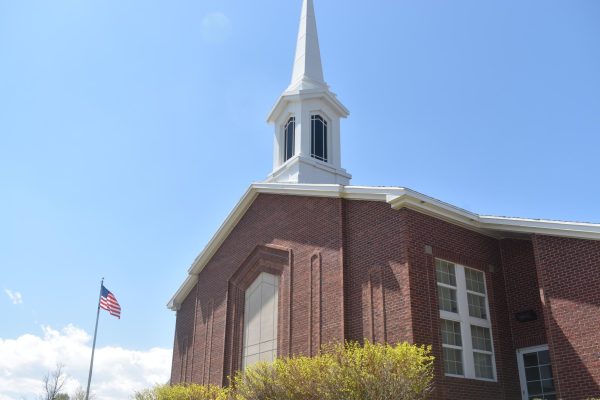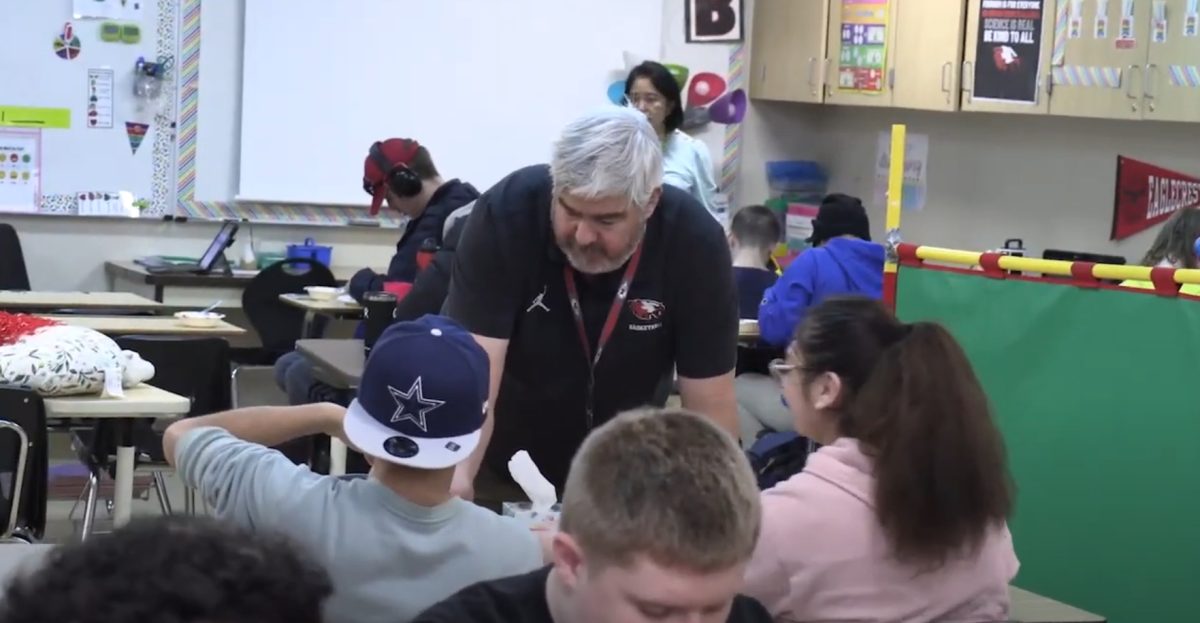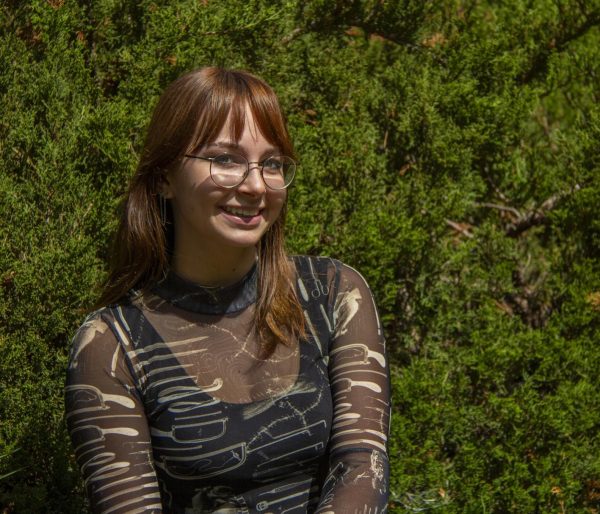In the 1962 Supreme Court case Engel vs. Vitale, the court ruled that school-sanctioned prayer was an unconstitutional violation of a student’s First Amendment right, separating school and religion. Despite this, many students still incorporate their religion into their daily life, outside the constraints of a classroom. Whether you’re an Atheist, Christian, or Pagan, religion is a crucial aspect in the decisions made by teens who follow it, helping them grow and define themselves as people.

(Avery Stelzriede)
Likely the most known, and most stereotypical definition of religion is Christianity. Composed of a monotheistic belief system under the interpretation of the Bible, Christianity is practiced by approximately 63% of adolescents, according to 2019 records from the Pew Research Center. While these beliefs are shared throughout the sects of Christianity, the origin i
n which these beliefs vary from person to person. For Senior Taylor Abbott, her relationship with God has been a journey of self-discovery, blossoming as she entered high school.
“I had a lot of struggles starting high school,” recalled Abbott, “The workload was a lot, the mental health was a little bit off, and it was just a bit of a lonely period.”
However, Abbott used this troubling time to explore her trust in God, becoming a more resilient person in return.
“Life can be absolutely terrible, and [Christianity] is the one thing I can count on. It just gives you a reason to be hopeful and want to be better,” explained Abbott.
While Abbott’s relationship with God is uniquely her own, it is also attributed to her upbringing. Raised Christian, Abbott frequently went to church, read the Bible, and was encouraged by her family. Nearly 47% of teens aged 13 to 17 share the same religious beliefs as their family, depicting the strong influence that one’s upbringing holds in shaping their devotion.
However, this similarity in family upbringing does not always yield positive results. Whether it be an act of defiance or a disagreement with the religion’s preaching, many teens shun away from the religion from their childhood, coming to new realizations in their adolescence.
This was the case for Abby Maughan, a Sophomore who grew up in the Mormon faith, a religion known for its very stringent and strict commandments. While these commandments are viewed to empower a healthy, and pure lifestyle, many argue that they enforce highly-polarized political beliefs, and extreme sexism, making it unsuitable for the teenage generation.

(Avery Stelzriede)
“All of that is really hard to be in,” admits Maughan, “I’m planning to leave as soon as I leave high school just because I feel like it’s trapping me.”
Yet, the decision to leave their faith is incredibly hard for teens, as it is a disobedience of the life that parents have created for them, leaving tension within one’s family. Maughan experienced this firsthand when her sister left the church when she went off to college, a decision that severely disrupted her relationship with her parents, making Maughan hesitant when breaking off from the church herself.
“It makes me upset that I wasn’t raised in a family that is accepting of everything, and will love me even if I don’t choose the same path as them,” said Maughan, “[If I were to leave] they would be really disappointed in me.”
While it may disrupt the relationship with her family, breaking away from her childhood faith gives Maughan, and many other teens the ability to define their beliefs on their own time, and through their own experiences. This is a common process for families who do not associate with a singular religion, giving teens the freedom to discover their own religious morals.
“Freedom is important because in the end, it’s one’s self -interpretation of the margins of a book, and what they can get out of it,” said Senior, Brennan Sauer, an Atheist.
Despite its highly stigmatized appearance, atheists simply lack the belief of the existence of any deities. Sauer was given the opportunity to choose his own path from his family, leading him to draw his own conclusions about the Bible, God, and religion as a whole, giving him a sense of identity.
“It’s taught me to take responsibility for my actions, and not blame bad things on a greater power, and live to what I believe is best for me,” Sauer explains.
While self-discovery can lead to breaking the ties of a family relationship, it can also rekindle old flames from generations past. This is much like the discovery of faith experienced by Sophomore, Felix Gardell, whose reconnection with his family roots led to the revelation of self-expression through Germanic Paganism. Paganism is a polytheistic religion, with followers devoting their faiths to deities of Norse, Greek, and Anglo-Saxon origins. However, much of the faith highlights one relationship with nature and the world around them.
“My great grandmother was a pagan, and I used to grow up with her doing a lot of different rituals,” said Gardell, “[one of them was] when she cooked, would say a few words when putting spices into the food because she thought it’d make it more nutritious.”

(Felix Gardell)
This led Gardell to define their own relationship with Paganism, one that had been nearly extinguished as current generations of his family converted to Christianity. His practices have assisted him in feeling secure in day-to-day life, and guidance for the challenges that come with it.
“Sometimes I use a scarf to veil my head as a form of protection, and I talk to my deities,” explained Gardell, “I have an altar in my room and I make offerings to them so they can give me insight on daily life.”
However, not every teen has well-defined religious morals, many of them are still trying to figure out which values suit their beliefs the best. Friends, family, media, and more all play a highly influential role in making this decision, but ultimately, religion is an experience unique to each person. Some teens will practice their family’s religion, others will find faith through the freedom of self-discovery, while others may choose not to associate with one religious group at all. Regardless, the choice is each teen’s decision to make.
“Make sure that it’s right for you. Don’t feel pressured because of family,” Gardell shared, “ It’s a form of self-discovery, finding who you are through religion and just thinking about it a little bit more.”








